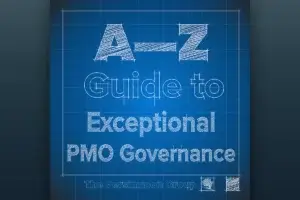The Project Management Institute just acquired the Agile Alliance, and nobody seems quite sure how to feel about it. Some see it as PMI playing catch-up (again), while others worry it signals the “corporatization” of agile. But what if we’re all missing the point? What if this merger isn’t about PMI versus Agile at all but rather about creating the conditions for something entirely new to emerge?
The End of Artificial Boundaries
For too long, we’ve maintained artificial boundaries between project management and product management, between “temporary endeavors” and ongoing value streams. This divide made sense in a world where most significant organizational changes came in the form of discrete projects. But that world is rapidly disappearing.
Today’s organizations need to be able to shift seamlessly between project-based work (yes, those still exist and matter) and continuous value delivery. They need frameworks and approaches that work equally well for building a new headquarters (definitely a project) and evolving a digital platform (definitely not a project, at least not in the traditional sense).
Time for a New Snowbird Moment
In 2001, seventeen software practitioners gathered at Snowbird, Utah, and emerged with the Agile Manifesto—a document that would reshape how we think about software development. Now, more than twenty years later, we’re due for another such revolution. But this time, we need to think bigger.
The PMI-Agile Alliance merger is just the latest sign that practitioners are tired of choosing sides. After twenty years of methodology wars, people are increasingly recognizing that neither camp has all the answers. While mergers alone rarely create real value, this one reflects a broader shift in thinking: Maybe it’s time to stop perfecting old approaches and start inventing new ones.
What might that look like? Imagine approaches that:
- Transcend the project/product divide entirely
- Focus on value flow rather than methodology
- Address the full spectrum of organizational change, not just software development
- Scale naturally without requiring frameworks-on-frameworks
- Embrace complexity without drowning in it
Beyond Both Worlds
While we work toward this new paradigm, organizations still need to deliver value. Think of it like a chef’s knife collection. A chef doesn’t argue about whether a santoku knife is better than a paring knife—they know each has its purpose. Similarly, organizations need to maintain competency in multiple approaches for now. But the real excitement lies in what might emerge when we stop forcing every initiative into either the “agile” or “waterfall” box and start asking fundamental questions about how value is best delivered in today’s world.
This isn’t about hybridization or “bimodal IT.” It’s about revolution. Just as agile emerged as a response to the limitations of traditional approaches, we need a new way of thinking that responds to the limitations of both agile and traditional methods.
What This Means for Practitioners
For those of us in the trenches, this evolution presents both challenges and opportunities. We need to:
- Look beyond existing methodologies to fundamental principles
- Question everything we “know” about how work gets done
- Focus on context and outcomes rather than process adherence
- Build competency in understanding and managing complex systems
- Get comfortable with emergence and uncertainty
The merger of PMI and the Agile Alliance symbolizes more than just consolidation in the project management space. It represents an opportunity to transcend the tired agile-versus-waterfall debate and create something new. We don’t need another framework or methodology. We need a revolution in how we think about delivering value in organizations.
The question isn’t whether you’re team agile or team traditional. The question is: Are you ready to help invent what comes next?










